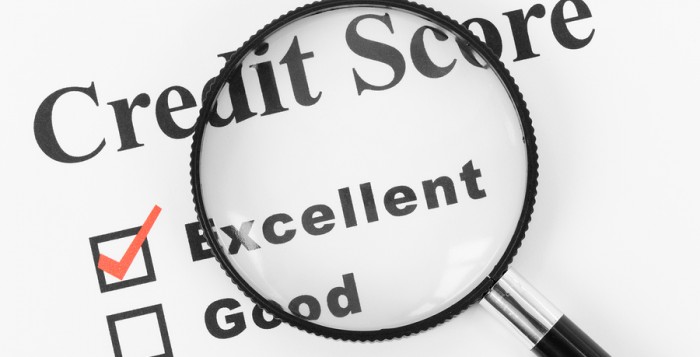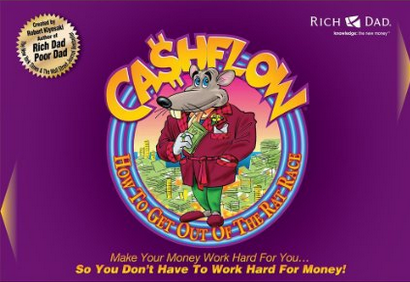
There are many misconceptions about credit scores out there. There are customers who believe that they don’t have a credit score and many customers who think that their credit scores just don’t really matter. These sorts of misconceptions can hurt your chances at some jobs, at good interest rates, and even your chances of getting some apartments.
The truth is,if you have a bank account and bills, than you have a credit score, and your credit score matters more than you might think. Your credit score may be called many things, including a credit risk rating, a FICO score, a credit rating, a FICO rating, or a credit risk score. All these terms refer to the same thing: the three-digit number that lets lenders get an idea of how likely you are to repay your bills.
Every time you apply for credit, apply for a job that requires you to handle money, or even apply for some more exclusive types of apartment living, your credit score is checked.
In fact, your credit score can be checked by anyone with a legitimate business need to do so. Your credit score is based on your past financial responsibilities and past payments and credit, and it provides potential lenders with a quick snapshot of your current financial state and past repayment habits.
In other words, your credit score lets lenders know quickly how much of a credit risk you are. Based on this credit score, lenders decide whether to trust you financially – and give you better rates when you apply for a loan. Apartment managers can use your credit score to decide whether you can be trusted to pay your rent on time. Employers can use your credit score to decide whether you can be trusted in a high-responsibility job that requires you to handle money.
The problem with credit scores is that there is quite a bit of misinformation circulated about, especially through some less than scrupulous companies who claim they can help you with your credit report and credit score – for a cost, of course.
From advertisements and suspect claims, customers sometimes come away with the idea that in order to boost their credit score, they have to pay money to a company or leave credit repair in the hands of so-called “experts.” Nothing could be further from the truth. It is perfectly possible to pay down debts and boost your credit on your own. In this article we will show you how to boost your own credit score and get out of bad debt.
Below are things you can do. Follow them and become debt free.
The Basics
Understand where credit scores come from
If you are going to improve your credit score, then logic has it that you must understand what your credit score is and how it works. Without this information, you won’t be able to very effectively improve your score because you won’t understand how the things you do in daily life affect your score.
If you don’t understand how your credit score works, you will also be at the mercy of any company that tries to tell you how you can improve your score – on their terms and at their price.
In general, your credit score is a number that lets lenders know how much of a credit risk you are. The credit score is a number, usually between 300 and 850, that lets lenders know how well you are paying off your debts and how much of a credit risk you are.
In general, the higher your credit score, the better credit risk you make and the more likely you are to be given credit at great rates. Scores in the low 600s and below will often give you trouble in finding credit, while scores of 720 and above will generally give you the best interest rates out there. However, credit scores are a lot like GPA or SAT scores you would receive from school while they give others a quick snapshot of how you are doing, they are interpreted by people in different ways. Some lenders put more emphasis on credit scores than others.
Some lenders will work with you if you have credit scores in the 600s, while others offer their best rates only to those creditors with very high scores indeed. Some lenders will look at your entire credit report while others will accept or reject your loan application based solely on your credit score.
The credit score is based on your credit report, which contains a history of your past debts and repayments. Credit bureaus use computers and mathematical calculations to arrive at a credit score from the information contained in your credit report.
Each credit bureau uses different methods to do this (which is why you will have different scores with different companies) but most credit bureaus use the FICO system. FICO is an acronym for the credit score calculating software offered by Fair Isaac Corporation company. This is by far the most used software since the Fair Isaac Corporation developed the credit score model used by many in the financial industry and is still considered one of the leaders in the field.
One other thing you may want to understand about the software and mathematics that goes into your credit score is the fact that the math used by the software is based on research and comparative mathematics. This is an important and simple concept that can help you understand how to boost your credit score. In simple terms, what this means is that your credit score is in a way calculated on the same principles as your insurance premiums.
Your insurance company likely asks you questions about your health, your lifestyle choices (such as whether you are a smoker) because these bits of information can tell the insurance company how much of a risk you are and how likely you are to make large claims later on. This is based on research.
Studies have shown, for example, that smokers tend to be more prone to serious illnesses and so require more medical attention. If you are a smoker, you may face higher insurance premiums because of this.
Similarly, credit bureaus and lenders often look at general patterns. Since people with too many debts tend not to have great rates of repayment, your credit score may suffer if you have too many debts. Especially bad debt. Understanding this can help you in two ways:
1) It will let you see that your credit score is not a personal reflection of how “good” or “bad” you are with money. Rather, it is a reflection of how well lenders and companies think you will repay your bills – based on information gathered from studying other people.
2) It will let you see that if you want to improve your credit score, you need to work on becoming the sort of debtor that studies have shown tends to repay their bills. You do not have to work hard to reinvent yourself financially and you do not have to start making much more money. You just need to be a reliable lender. This realization alone should help make credit repair far less stressful!
Credit reports are put together by credit bureaus, which use information from client companies. It works like this: credit bureaus have clients – such as credit card companies and utility companies, to name just two – who provide them with information.
Once a file is begun on you (i.e. once you open a bank account or have bills to pay) then information about you is stored on the record. If you are late paying a bill, the clients call the credit bureaus and note this. Any unpaid bills, overdue bills or other problems with credit count as “dings” on your credit report and affect your score.
Information such as what type of debt you have, how much debt you have, how regularly you pay your bills on time, and your credit accounts are all information that is used to calculate your credit score.
Your age, sex, and income do not count towards your credit score. The actual formula used by credit bureaus to calculate credit scores is a well-kept secret, but it is known that recent account activity, debts, length of credit, unpaid accounts, and types of credit are among the things that count the most in tabulating credit scores from a credit report.
Now that you have a brief overview the following are tips to boost your credit. Take care of your credit and it will take care of you, for it will guide you to a prosperous future.
The Best Ways to Boost Your Credit Score
Because of the way credit scores are calculated, some actions you take will affect your credit score better than others. In general, paying your bills on time and meeting your financial responsibilities will boost your score the most. Owing a reasonable amount of money and being able to repay it will show lenders that you take your finances seriously and pose little threat if they give you a loan. So the key to boosting your credit is to be responsible with your finances.
Tip # 1: Pay your bills on time
One of the best ways to improve your credit score is simply to pay your bills on time. This is absurdly simple but it works very well, because nothing shows lenders that you take debts seriously as much as a history of paying promptly. Every lender wants to be paid in full and on time.
If you pay all your bills on time then the odds are good that you will make the payments on a new debt on time, too, and that is certainly something every lender wants to see. Experts think that up to 35% of your credit score is based on your paying of bills on time, so this simple step is one of the easiest ways to boost your credit score.
Paying your bills on time also ensures that you don’t get hit with late fees and other financial penalties that make paying your bills off harder. Paying your bills in a timely way makes it easier to keep making payments on time.
Of course, if you have had problems making your payments on time in the past, your current credit score will reflect this. It will take a number of months of repaying your bills on time to improve your credit score again, but the effort will be well worth it when your credit risk rating rebounds!
Tip #2: Avoid excessive credit
If you have many lines of credit or several huge debts, you make a worse credit risk because you are close to “overextending your credit.” This simply means that you may be taking on more credit than you can comfortably pay off. Even if you are making payments regularly now on existing bills, lenders know that you will have a harder time paying off your bills if your debt load grows too much.
The higher your debts the greater your monthly debt payments and so the higher the risk that you will eventually be able to repay your debts. Plus, statistical studies have shown that those with high debt loads have the hardest time financially when faced with a crisis such as a divorce, unemployment, or sudden illness.
Lenders (and credit bureaus who calculate your credit score) know that the more debt you have the greater problems you will have in case you do run into a life crisis.
In order to have a great credit score, avoid taking out excessive credit. You should stick to one or two credit cards and one or two other major debts (car loan, mortgage) in order to have the best credit rating. Do not apply for every new credit line or credit card “just in case.” Borrow only when you need it and make sure to make payments on your debts on time.
You should also know that taking out lots of new credit accounts in a relatively short period of time will cause your credit score to nosedive because it will look as though you are being financially irresponsible.
Tip #3: Pay Down Your Debts
If you have a lot of debt, your credit score will suffer. Paying down your debts to a minimum will help elevate your credit score. For example, if you have a $1000 limit on your credit card and you regularly carry a balance of $900, you will be a less attractive credit risk to lenders than someone who has the same credit card but carries a smaller balance of $100 or so. If you are serious about improving your credit score, then start with the largest debt you have and start paying it down so that you are using a less large percentage of your credit total.
In general, try to make sure that you use no more than 50% of your credit. That means that if your credit card has a limit of $5000, make sure that you pay it down to at least $2500 and work at carrying no larger balance. If possible, reduce the debt even more. If you can pay off your credit card in full each month that is even better. What counts here is what percentage of your total credit limit you are using – the lower the better.
Tip #4: Have a range of credit types
The types of credit you have are a factor in calculating your credit score. In general, lenders like to see that you are able to handle a range of credit types well. Having some form of personal credit – such as credit cards – and some larger types of credit – such as a mortgage or auto loan – and paying them off regularly is better than having only one type of credit.
Tip #5: Purchase items you can pay quickly and pay in full
Another way to increase your credit is to purchase items you won’t struggle to pay. While you shouldn’t purchase items you can’t pay, it’s no surprise how many people do, just look at our economy. By purchasing items you can pay quickly you generate full payment inquiries on your report. A positive inquiry is better than negative so don’t buy things you can’t afford.
Tip #6 Invest In Debt That Pay Itself
One of the best ways to boost your credit is to invest in debt that pays itself. One way you can do this is buy a rental property which tenants pay expenses for you. By owning a rental, you graduated from bad debt to good debt. It is important to first eliminate majority of your bad debt first to get the greatest rates possible which can increase return on investment.
This concludes this article on credit; share this article to those it can help. And remember, take care of your credit and it will take care of you. Leave a feedback if you have questions below.






 Posted in
Posted in  Tags:
Tags: 


